Are you facing a dispute with a supplier and feeling overwhelmed? Navigating these complex situations can be daunting, but it doesn't have to be. In this article, we'll break down the essential steps for crafting an effective mediation request that can help bridge the gap and foster better communication. So, let's dive in and explore how you can resolve your supplier disputes smoothly!
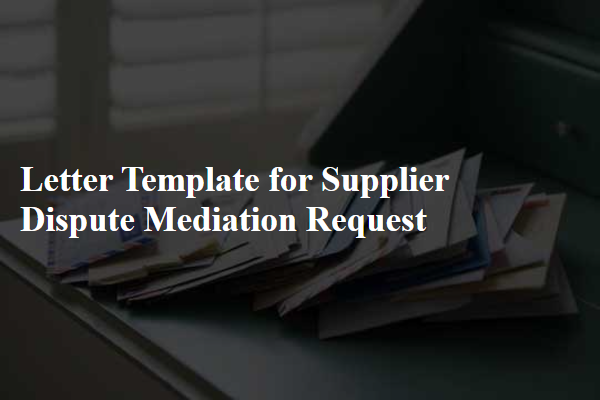
Clear statement of issue and dispute description
Supplier disputes often arise from issues such as delivery delays, product quality discrepancies, or contract misunderstandings. For example, a supplier may fail to deliver 500 units of a specific electronic component, resulting in project delays and financial losses for the purchasing company. In another scenario, a batch of fabrics may not meet the quality standards outlined in the contract, leading to defects in finished products. Documenting these issues clearly, along with relevant dates, contract details, and communications, is crucial for effective mediation. Additionally, it is important to identify the desired resolution, such as compensation for losses or a revised delivery schedule, to facilitate a constructive dialogue during the mediation process.
Relevant contract terms and conditions
A supplier dispute mediation request should reference the specific contract terms and conditions that govern the supplier relationship, such as delivery schedules, payment terms, quality standards, and dispute resolution processes. Relevant sections may include the "Delivery and Acceptance" clause that outlines the expectations for timely delivery to avoid penalties, or the "Quality Assurance" provisions which specify the acceptable quality metrics for goods provided. Additionally, incorporating the "Dispute Resolution" framework, including mandatory mediation procedures before litigation, is crucial. This framework typically highlights the timelines for mediation initiation and the roles of both parties in resolving discrepancies amicably. The invocation of these contract terms creates a solid foundation for addressing disputes and fostering a cooperative resolution environment.
Supporting documentation and evidence
A supplier dispute mediation request should include comprehensive supporting documentation and evidence to ensure clarity and facilitate resolution. Key documents such as purchase orders (specific transactions from suppliers), invoices (detailed billing information with dates and amounts), and correspondence records (emails or letters exchanged between parties) must be compiled. Photographic evidence (images or screenshots illustrating product quality issues) can substantiate claims, alongside any quality assurance reports (documents examining product standards). Additionally, contracts (formal agreements outlining terms and conditions) should be referenced to clarify obligations. Inventory records (lists of received and outstanding products) may help illustrate discrepancies in quantities. Gathering this data can strengthen the mediation process by providing context and substantiating the claims presented.
Proposed resolution or desired outcome
A supplier dispute mediation request aims to address conflicts effectively while seeking resolution. The desired outcome may include compensation adjustments, delivery timelines modifications, or product quality improvements. Detailed exploration of these aspects can help clarify expectations. For instance, proposing a refund amounting to 15% of the total order value due to subpar quality could serve as a concrete resolution. Alternatively, negotiating revised delivery schedules with specific dates may prevent future delays. Maintaining open communication, encouraging collaboration throughout the mediation process, fosters a mutually beneficial relationship. Documenting agreements in writing ensures clarity and accountability, paving the way for improved partnerships going forward.
Request for a meeting or mediation session
A request for mediation regarding supplier disputes often emphasizes the importance of clear communication and resolution. Disputes between companies and suppliers, arising from issues such as delayed shipments or quality discrepancies, can negatively impact production lines, resulting in financial losses exceeding thousands of dollars per day. A mediation session, typically facilitated by an impartial third party, aims to address these issues in a structured environment, promoting collaboration and understanding. Identifying key stakeholders, such as procurement managers or supply chain coordinators, is vital in ensuring that all perspectives are represented in the mediation. Scheduling this meeting at a neutral location, like a conference room or virtual platform, can foster a conducive atmosphere for open dialogue and effective problem-solving, ultimately restoring business relationships and streamlining operations.
Letter Template For Supplier Dispute Mediation Request Samples
Letter template of supplier dispute mediation request for payment issues
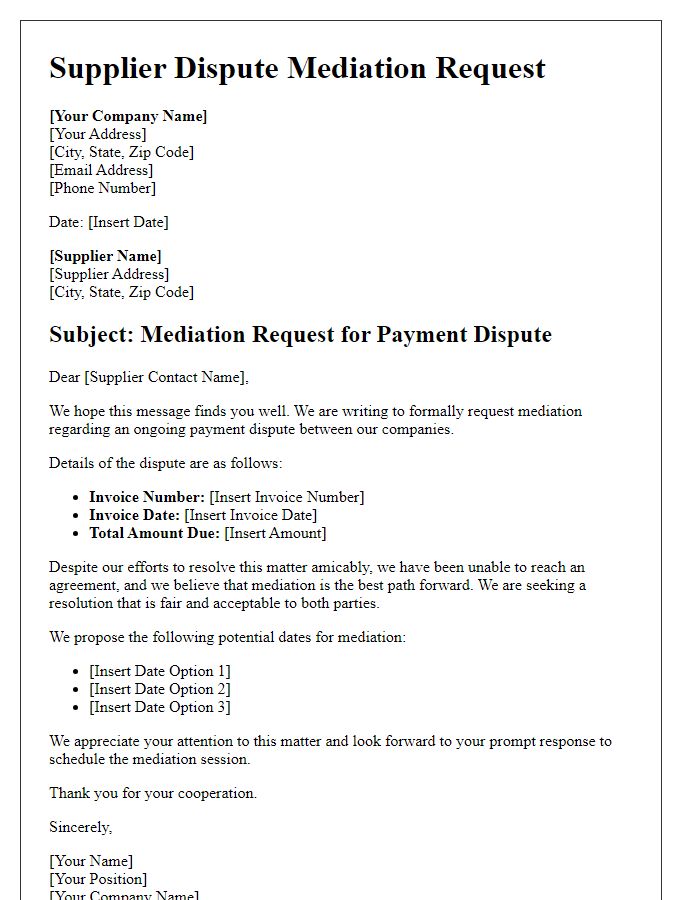
Letter template of supplier dispute mediation request regarding quality concerns
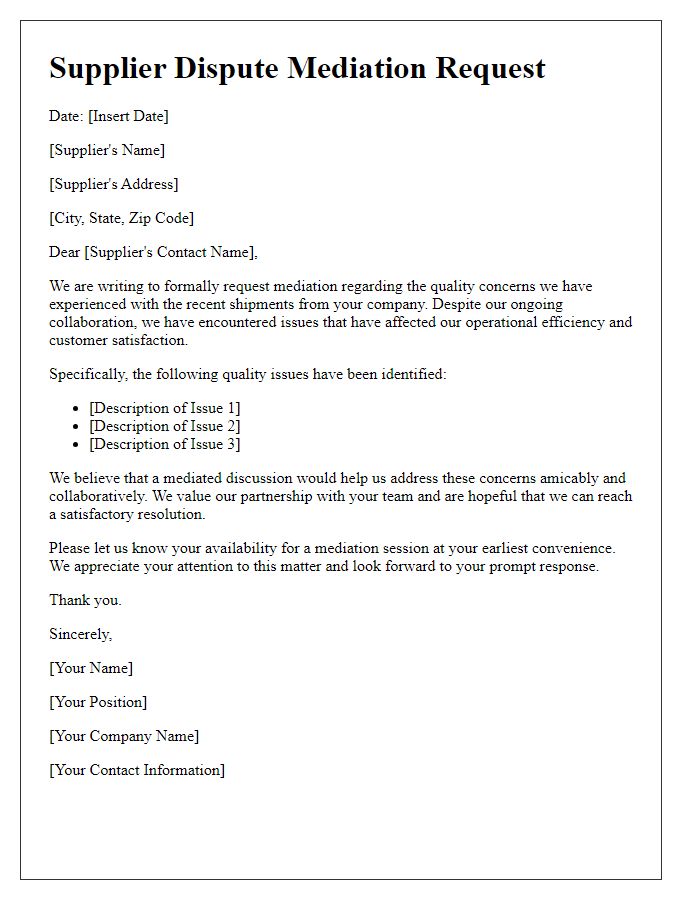
Letter template of supplier dispute mediation request over delivery delays
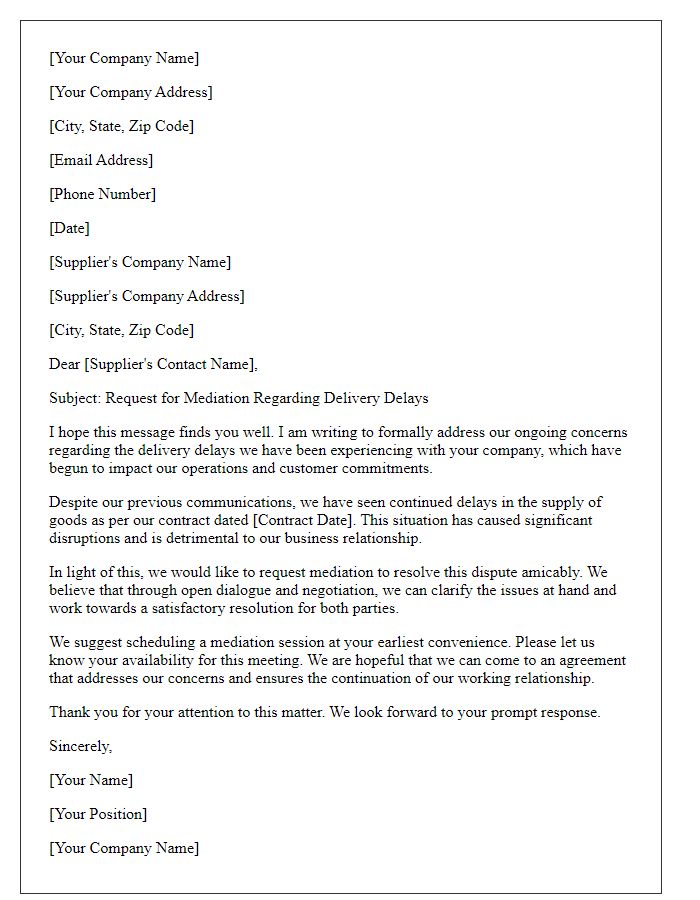
Letter template of supplier dispute mediation request for contract discrepancies
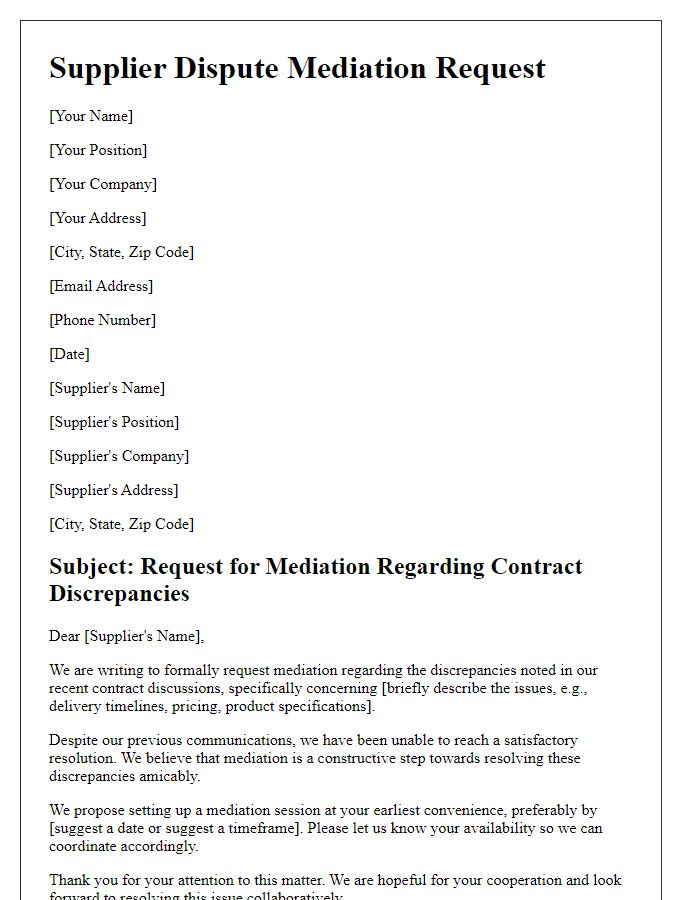
Letter template of supplier dispute mediation request concerning product specifications
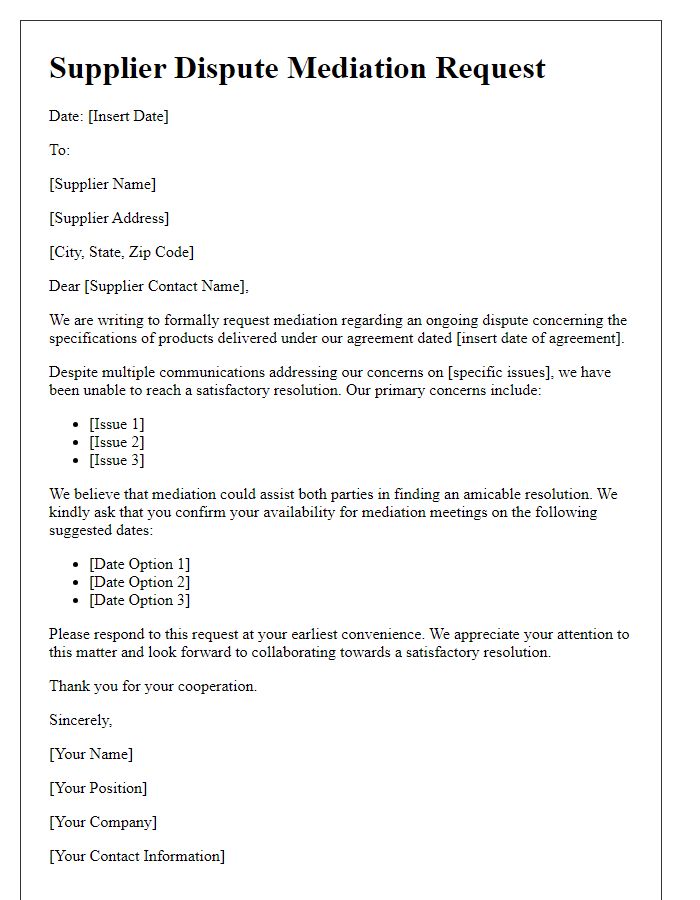
Letter template of supplier dispute mediation request for pricing disagreements
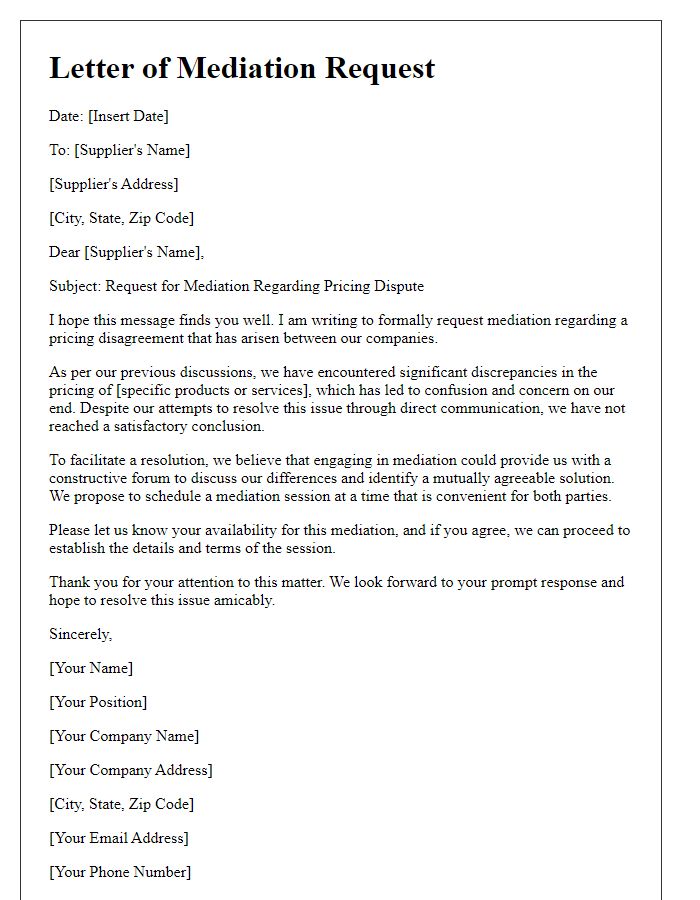
Letter template of supplier dispute mediation request related to service performance
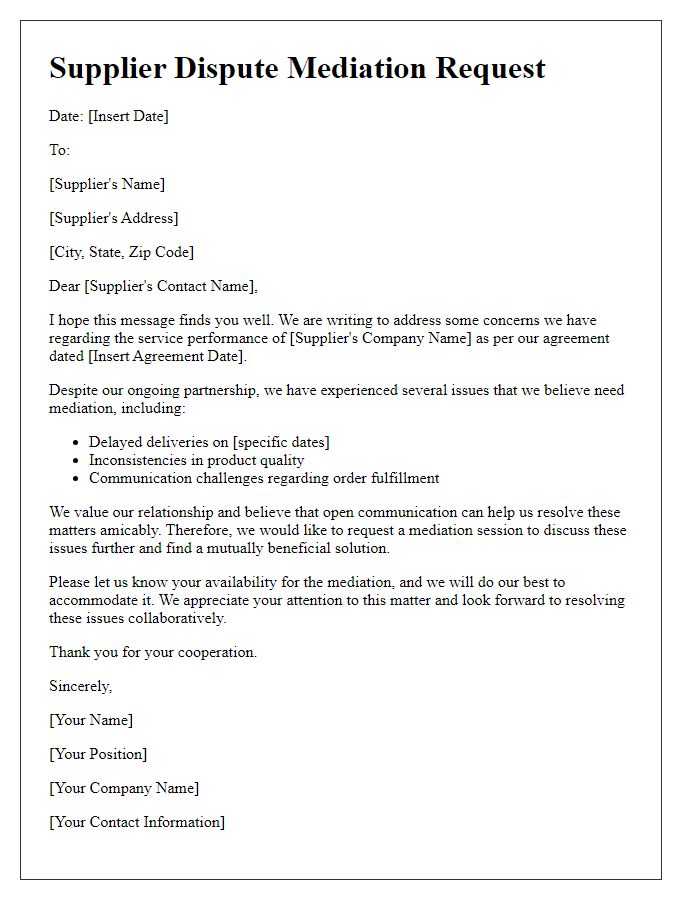
Letter template of supplier dispute mediation request about warranty claims
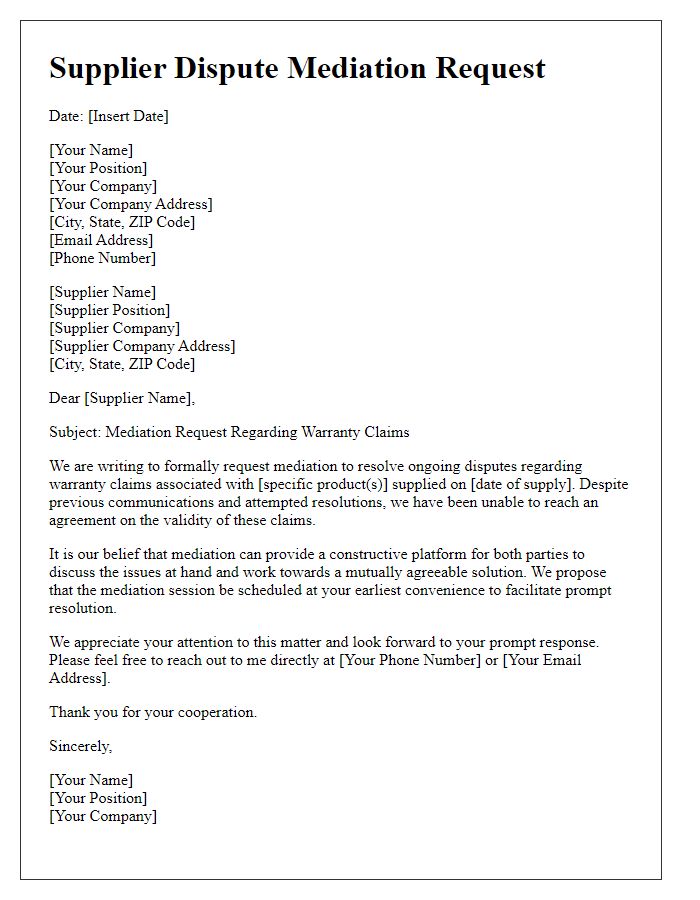
Letter template of supplier dispute mediation request for breach of agreement
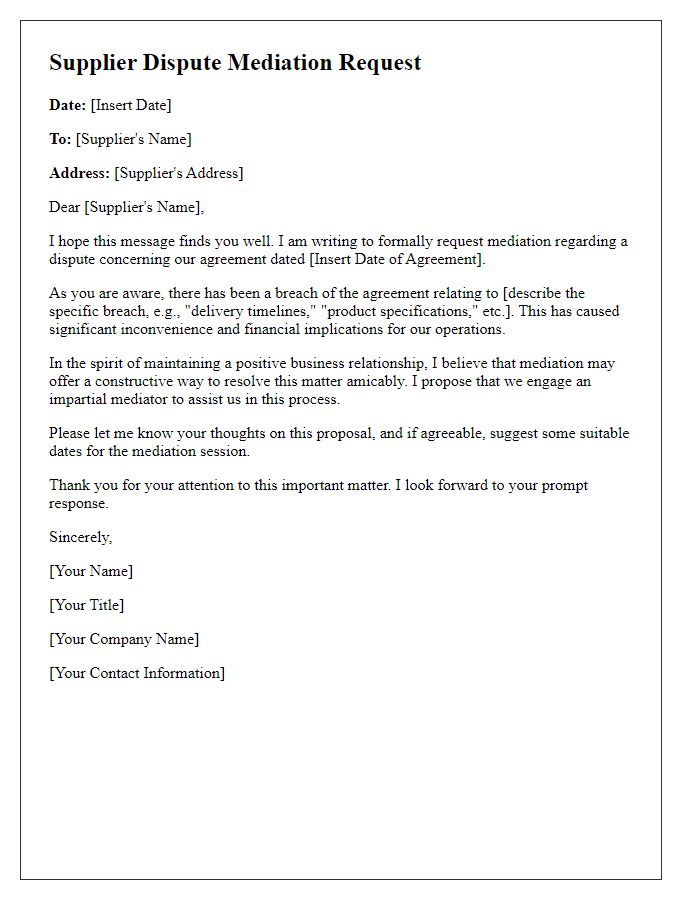

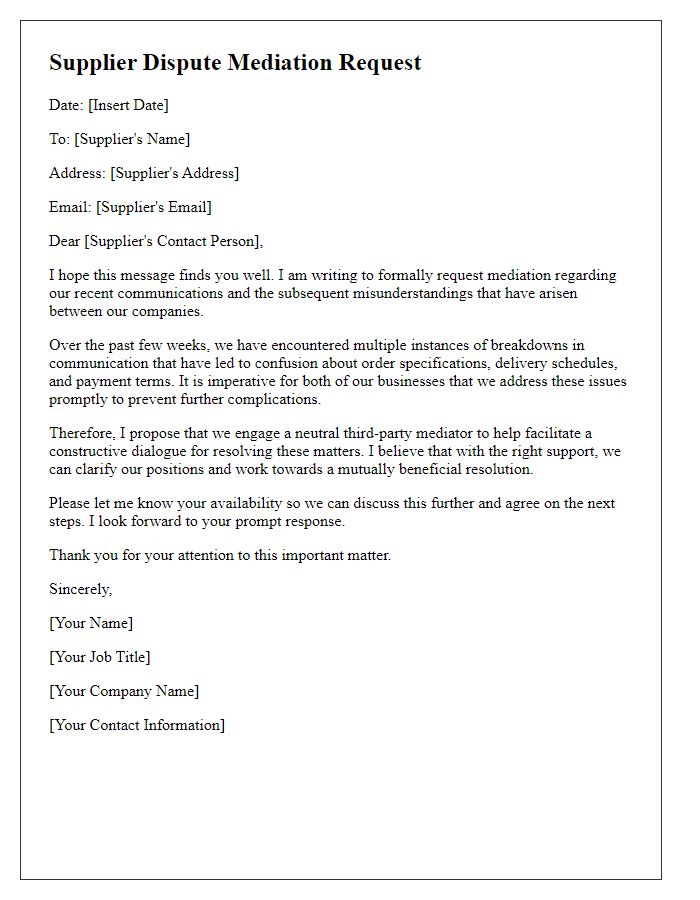


Comments